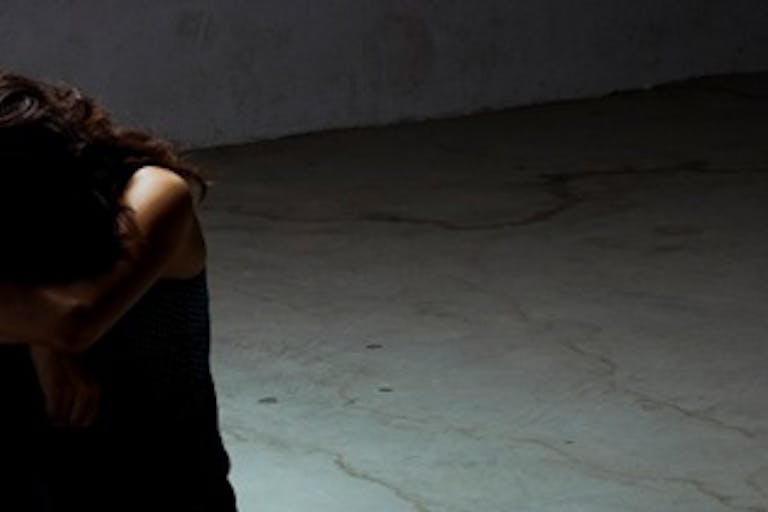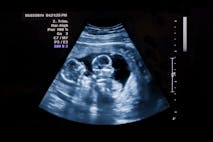
Live Action's Top 10 Highlights of 2025: Engaging the culture with pro-life truth
Nancy Flanders
·
No, post-abortion syndrome is not a myth
The worst thing for an abortion advocate to admit is that women may regret their abortions. Their argument is that abortion is a social good, after all, so if it’s such a great thing, then women shouldn’t ever regret it. If they do, then it casts doubt on the idea that abortion is such a positive thing.
Pro-abortion writer Maria Jose Duran opines that post-abortion syndrome is a myth, and that it’s also dangerous. She backs up her claim with her own lack of guilt after having an abortion, and a now-discredited pro-abortion study.
Post-Abortion Syndrome—a form of post-traumatic stress marked by “grief, pain, regret, and denial”—is a fallacious condition used by Crisis Pregnancy Centers (also called Pregnancy Resource Centers) to frighten women into taking their unwanted pregnancies to full term. Despite the fact that this psychological disorder has been long refuted by the medical community and fosters fear and deception, and arguably ruins lives, it remains a potent and ubiquitous tactic.
… What that actually means in scientific or psychological terms is nebulous at best; not only isn’t post-abortion syndrome recognized by the American Psychological Association or the American Psychiatric Association as an actual disorder, but a 2015 study from Advancing New Standards in Reproductive Health (ANSIRH) found that 95% of 1,000 women who sought abortions in 21 different states not only didn’t regret their decision but described profound “relief.”
So this must mean that women don’t have negative experiences after abortion. Right?
In fact, the American Psychological Association’s Task Force on Mental Health and Abortion concluded that external societal factors like “interpersonal concerns, including feelings of stigma, perceived need for secrecy, exposure to antiabortion picketing, and low perceived or anticipated social support for the abortion decision, negatively affected women’s postabortion psychological experiences.”
In short? The choice to terminate a pregnancy does not induce mental harm, but anti-abortion rhetoric, manipulative tactics, and the shame-based climate they create certainly do.
Wait, wait, wait — which is it? Do women have negative post-abortion psychological experiences or not? Do they experience “relief,” or are they traumatized after the fact by pro-lifers and their “manipulative” pro-life ideas? The writer can’t seem to make up her mind.
Interestingly, the 2015 study Duran cites as proof that most women feel fine after their abortions has been thoroughly discredited. It contained severe methodological errors, and the director is a biased, pro-abortion extremist who has openly talked about abortion as a social good. Are we to believe that such a person is going to publish a study pointing out the negative effects abortion can have on women?
Article continues below
Dear Reader,
In 2026, Live Action is heading straight where the battle is fiercest: college campuses.
We have a bold initiative to establish 100 Live Action campus chapters within the next year, and your partnership will make it a success!
Your support today will help train and equip young leaders, bring Live Action’s educational content into academic environments, host on-campus events and debates, and empower students to challenge the pro-abortion status quo with truth and compassion.
Invest in pro-life grassroots outreach and cultural formation with your TRIPLED year-end gift!

The truth is, while we can split hairs by saying that the literal phrase “post-abortion syndrome” isn’t recognized by the American Psychological Association, the fact is, there is plenty of data to show that it can have serious negative effects. In fact, 29 out of 30 studies showed that abortion has negative psychological consequences. Live Action News’s Calvin Freiburger pointed out that this information isn’t coming from angry pro-lifers:
No, that would be peer-reviewed studies from mainstream researchers and journals who warn us about a 154 percent increased risk of suicide (Southern Medical Journal, 2002), a tenfold spike in suicide attempts among post-abortive teenage girls (University of Minnesota: Minnesota Extension Service, 1986), 65 percent higher risk of long-term clinical depression (Medical Science Monitor, 2003), a doubled chance of hospitalization for psychiatric illness (Canadian Medical Association Journal, 2003), and a fivefold increase in drug and alcohol abuse (American Journal of Drug and Alcohol Abuse, 2000).
And while Duran discounts any negative physical consequences, those unfortunately exist, too. Women who have abortions aren’t just risking higher incidences of mental health disorders, like suicidal behavior, depression, anxiety, and drug and alcohol abuse. They’re also at an increased risk for multiple cancers, such as breast, ovarian, cervical, and liver cancer. They’re more likely to have premature birth in future pregnancies, and are also at a higher risk for endometriosis and pelvic inflammatory disease. Sadly, women are also more likely to become victims of domestic violence after having an abortion as well.
It’s interesting that pro-abortion extremists claim that women are forced to keep quiet about their abortions because of societal stigma, considering that they’re trying to silence the many women who are in pain after an abortion, pretending they don’t exist. Stories of women who have attempted or committed suicide aren’t welcome among the pro-abortion extremists. It doesn’t fit their narrative.
And while Duran talks a lot about pregnancy centers (and how evil she thinks they are), she doesn’t mention at all the ministries that are there to help post-abortive women. Apparently, if Duran didn’t feel guilty after an abortion, then no one should, right?
It’s pro-lifers that are there for the broken women the abortion industry callously tosses aside, with many pregnancy centers offering post-abortion counseling, as well as ministries like Rachel’s Vineyard and OptionLine. It just goes to show, yet again, that these people are not “pro-choice.” They don’t want women to have all of the options, nor do they want women to be informed. They want to further their own agenda by pretending that abortion is a good thing that will solve all of women’s problems. It doesn’t matter if the truth gets in the way of that agenda, though. The reality is what it is, and no amount of pro-abortion spin can change that.
Live Action News is pro-life news and commentary from a pro-life perspective.
Contact editor@liveaction.org for questions, corrections, or if you are seeking permission to reprint any Live Action News content.
Guest Articles: To submit a guest article to Live Action News, email editor@liveaction.org with an attached Word document of 800-1000 words. Please also attach any photos relevant to your submission if applicable. If your submission is accepted for publication, you will be notified within three weeks. Guest articles are not compensated (see our Open License Agreement). Thank you for your interest in Live Action News!

Nancy Flanders
·
Analysis
Cassy Cooke
·
Analysis
Cassy Cooke
·
Analysis
Bridget Sielicki
·
Analysis
Cassy Cooke
·
Analysis
Cassy Cooke
·
Analysis
Cassy Cooke
·
Analysis
Cassy Cooke
·
International
Cassy Cooke
·
Analysis
Cassy Cooke
·
Analysis
Cassy Cooke
·